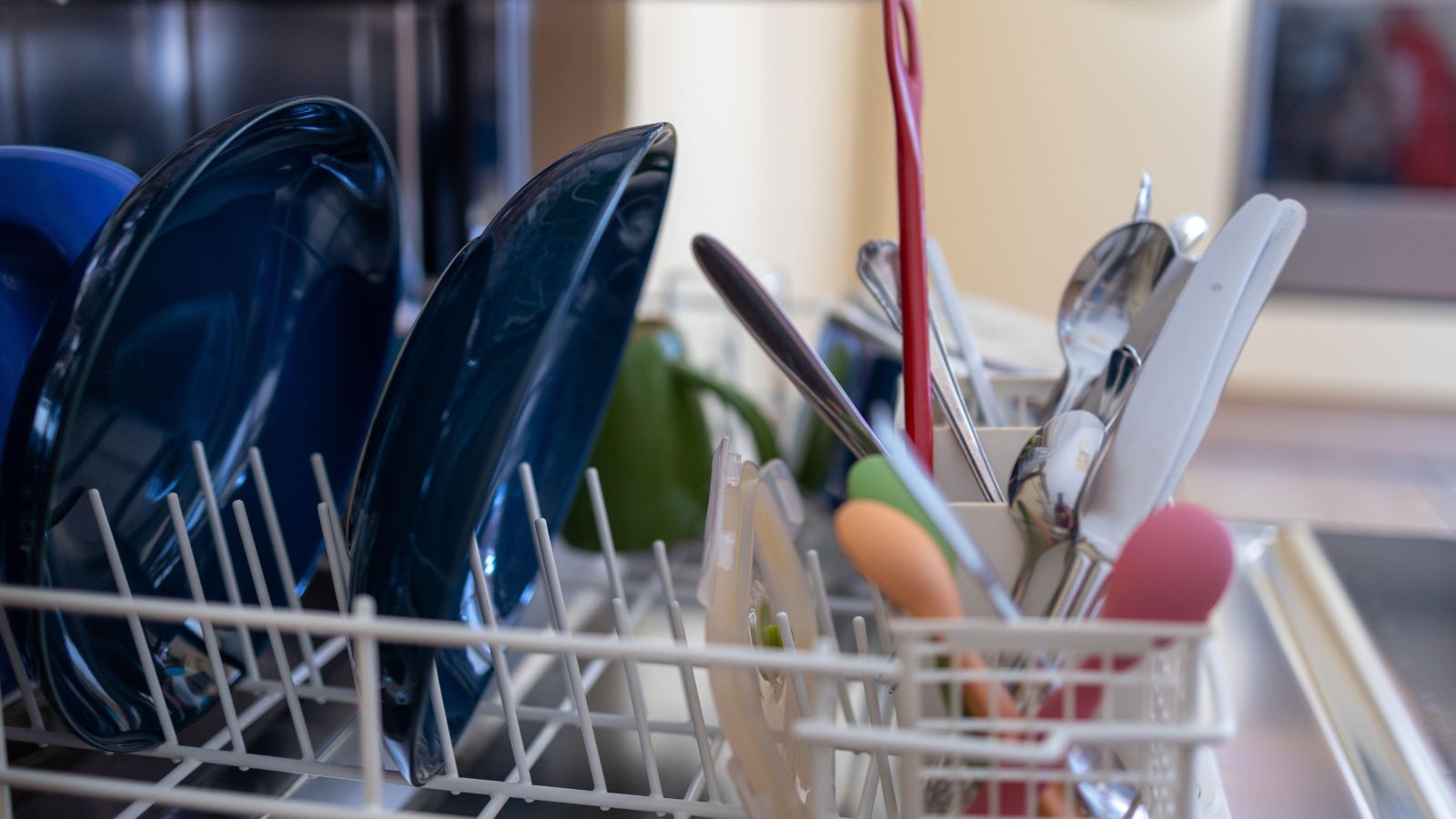I saved myself a servicing fee with this simple dishwasher maintenance trick
Using vinegar, baking soda and a toothbrush, you can fix a dishwasher yourself if it's giving you a patchy wash


Recently I noticed that my dishes, pans and glassware, even after a thorough rinse in the dishwasher, weren’t coming out as clean as I would like them to. They still had bits of food and tiny bits of debris stuck on them, and there was an odd sort of smell, as well as a thin film over the glassware.
A quick internet query later to see if I needed to call a dishwasher servicing company, and I soon discovered that I actually just needed to clean my dishwasher to fix the problem. In fact, it needed a good, deep clean.
Because, it turns out, that if not cleaned for a while, the filters in the machine get clogged up with all the gunk, which then in turn gets on all the dishes which it’s supposed to be cleaning. Even after all this time of using the dishwasher, I had wrongfully been assuming that a dishwasher was self-cleaning. A closer look inside revealed the opposite.
So, I bought dishwasher cleaning tablets (Affresh W10282479 Dishwasher Cleaner, relying on 60,000+ pretty good reviews on Amazon as a guide to the best). They went a long way to improve the wash, but peering inside the machine, I could still see the gunk.
There's nothing else for it: elbow grease. And you can't buy that at Amazon. This is what I did, and it worked. It has to be said though, I'm going to use the dishwasher cleaning tabs once a month from now on and give my dishes a quick rinse in cold water before they go into the machine so that I don't have to keep repeating it.
1. Remove the racks, spray arms and filters
Since the filters and spray arms were obviously clogged, causing my dishwasher not to clean my dishes, I let them soak, along with the racks in a mixture of warm water and distilled vinegar for a minimum of one hour, although it’s perfectly alright to leave it longer too.
Then I scrubbed them with a brush just to make sure that there was nothing left behind. I checked the spray arm's and filter's tiny holes, using a toothpick to clear them. This can take some time but really makes all the difference. Then I rinsed them inside and out with hot water.
Design expertise in your inbox – from inspiring decorating ideas and beautiful celebrity homes to practical gardening advice and shopping round-ups.
Filters and spray arms usually just clip off, but if you don’t know how to remove yours, it might be a good time to consult the manual. You can also read our guide to unclogging a dishwasher for more guidance, too.
2. Get to work with a toothbrush
The next part takes some time, but it's worth it. I took an old toothbrush and dipped it in equal parts baking soda and vinegar and went over all the crevices inside to ensure that no food particles were stuck anywhere. Cleaning with vinegar and adding baking soda to clean creates a powerful solution that can dissolve gunk instantly.
3. Give it a vinegar rinse
The next thing I did is to make sure that the dishwasher was properly disinfected, and that the particles were thoroughly removed. I replaced the filters, spray arm and racks, filled a dishwasher-safe bowl with white vinegar, placed it at the bottom of the dishwasher and ran the dishwasher on the hottest and longest cycle. The vinegar breaks down any left-over food particles, that I might have missed while wiping it down. I’ve found out that this is the perfect way to descale the dishwasher.
4. Deodorize with baking soda
Although the previous step might ensure that its quite clean by now, I do like to go a step further ahead and sprinkle a cup of baking soda at the bottom of the dishwasher and run it again on the longest and hottest cycle. This removes any extra stains left and deodorizes the machine.
5. Finish the job
Once everything is done, just for a final cleanse, I take an all-purpose homemade cleaning spray and clean the base and the door of the dishwasher. I then take a microfiber cloth (these are the best value micro fiber cloths from Amazon) and wipe down the whole area.
As a plus, I also put some baking soda on a cleaning brush and go over the outside nooks and crevices of the dishwasher. This helps with the discoloration, especially if the door is light-colored. This can also be done with a surface cleaner and an all-purpose cleaning cloth as well.
Can I repair my dishwasher myself?
Most dishwasher repairs can be done yourself, especially if they are related to the quality of the wash, missing or damaged parts being replaced or error messages which are often explained in the dishwasher's manual. We would not advise undertaking dishwasher repairs that involve electrics in particular. Instead, call in a professional.
How do I service my dishwasher?
To service your dishwasher, it is vital to remove the filter and spray arm and to ensure they are clean inside of any gunk or limescale. Soaking them in limescale remover or vinegar can help achieve this. Again, Affresh W10282479 Dishwasher Cleaner, can be used to do this if you want to clean the filters in the machine. Next, clean the door and seals, avoiding any harsh products like vinegar, which can break down rubber, opting instead for a toothbrush and soapy water to do the job. Rinse and repeat if necessary.

Aimen is a recent graduate in BA (Hons) in Journalism from Kingston University, where she served as deputy editor for her University’s newspaper, focusing on hyper-local news. She has previously worked as a travel and culture journalist for various publications. She's fond of curating indigenous handicrafts at her home, collected during her domestic and international travels. She is also constantly on the lookout for design inspiration and emerging trends.